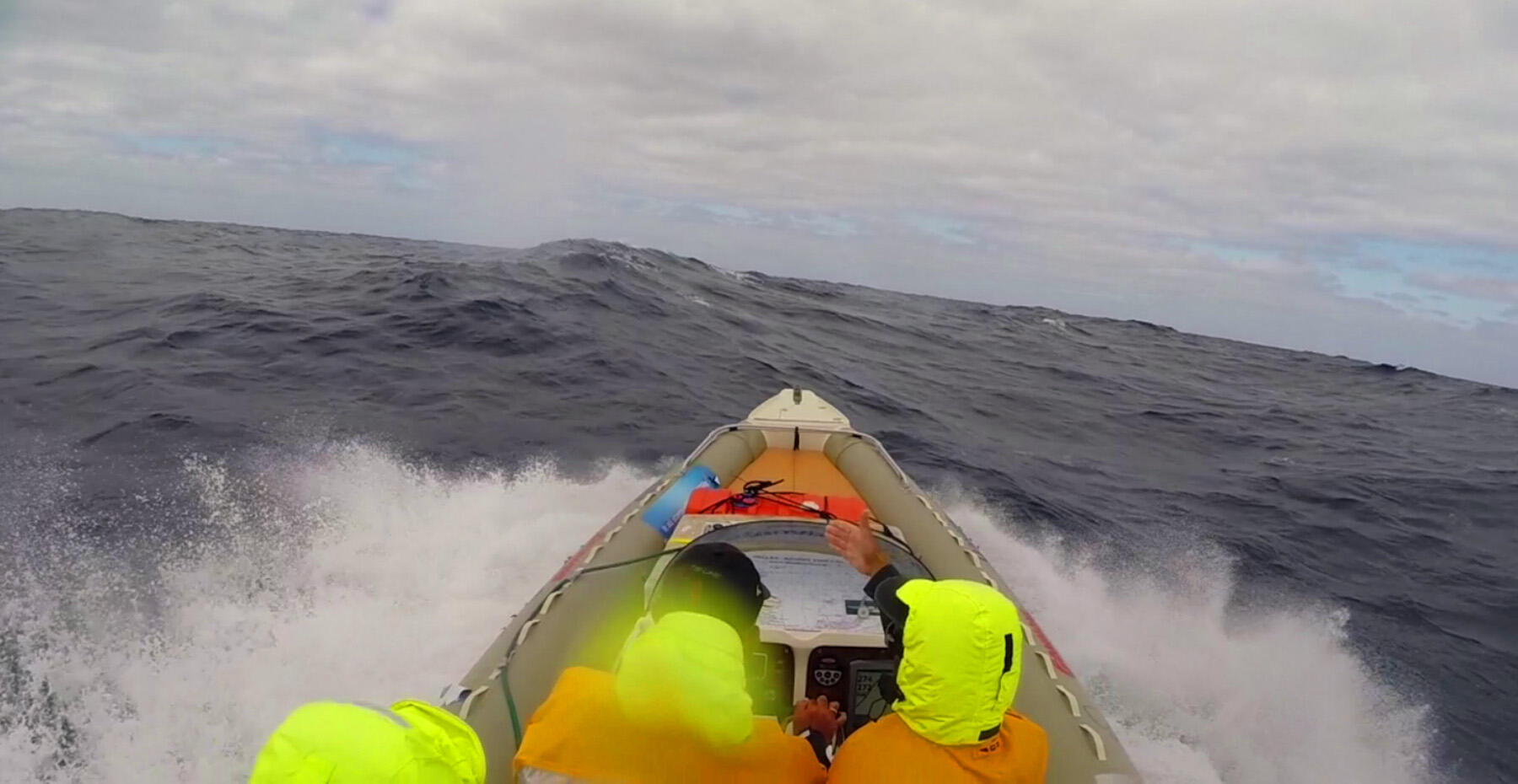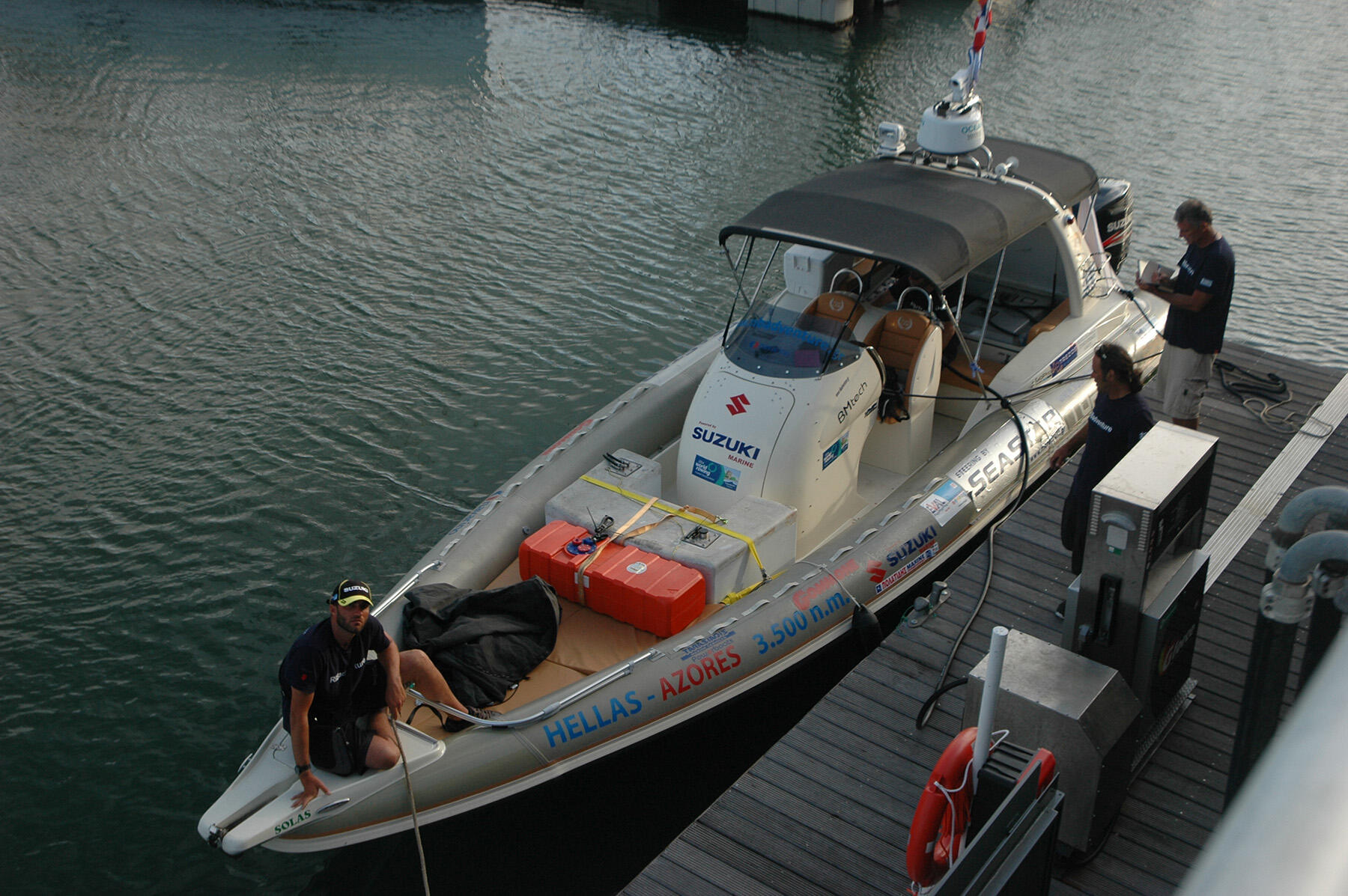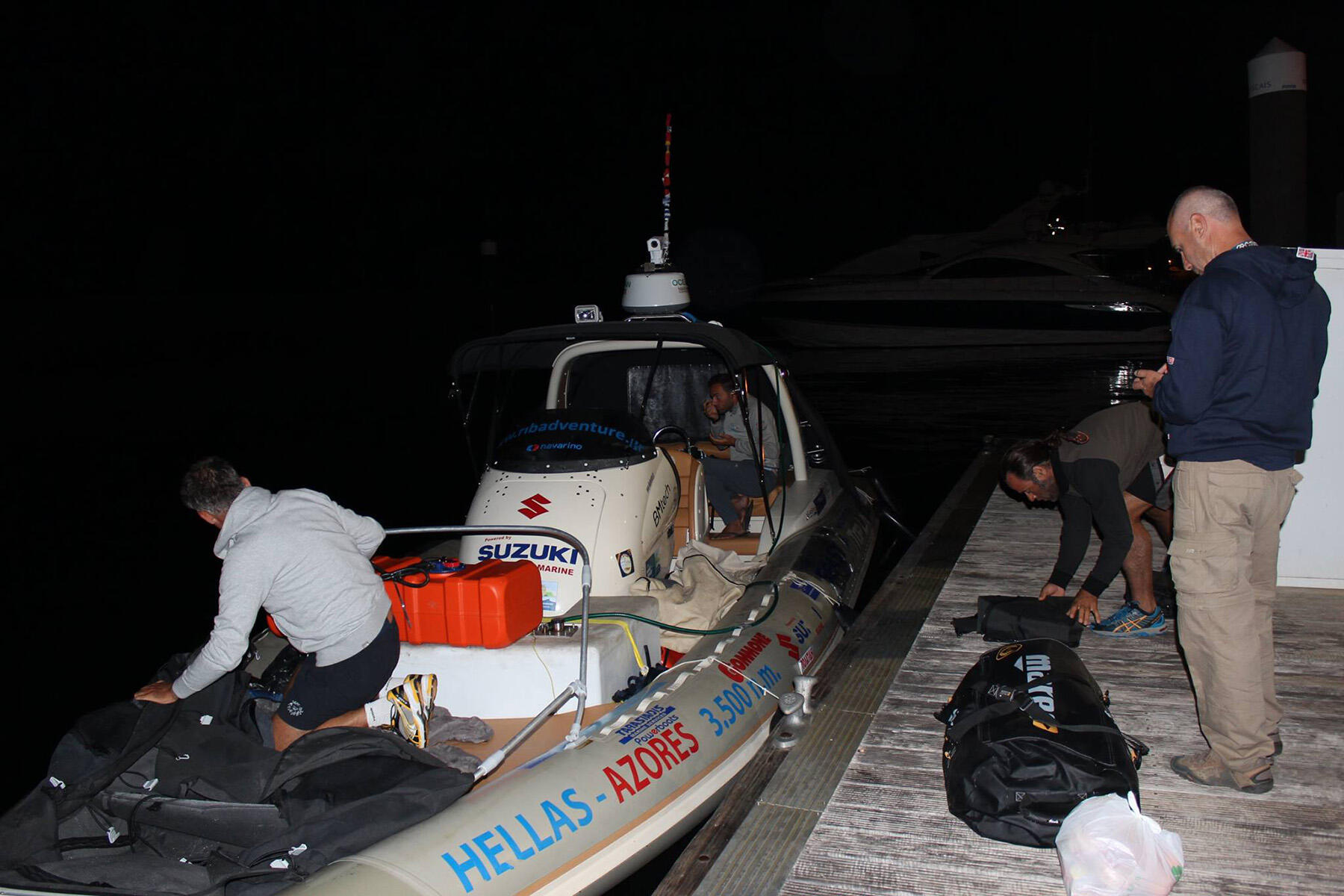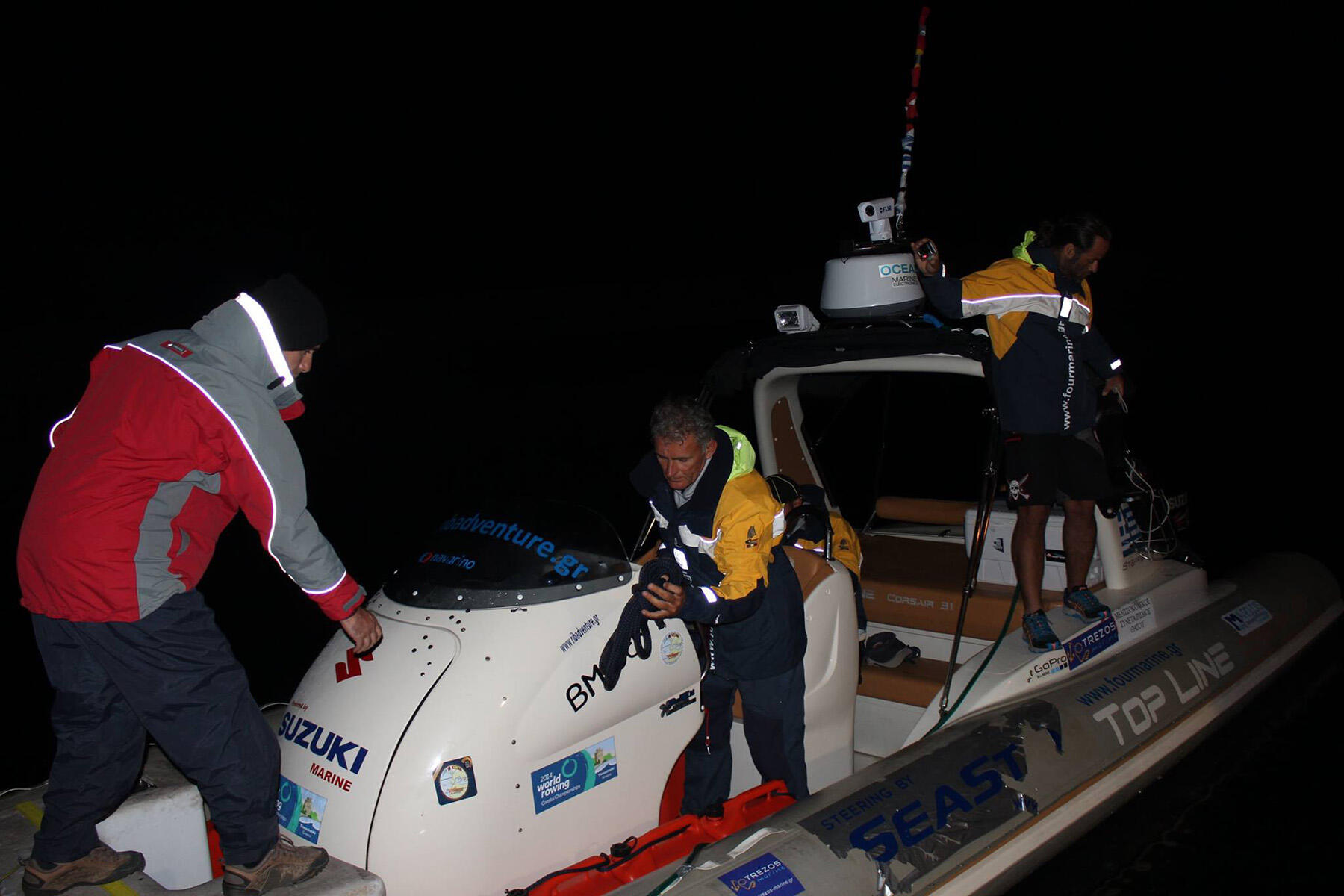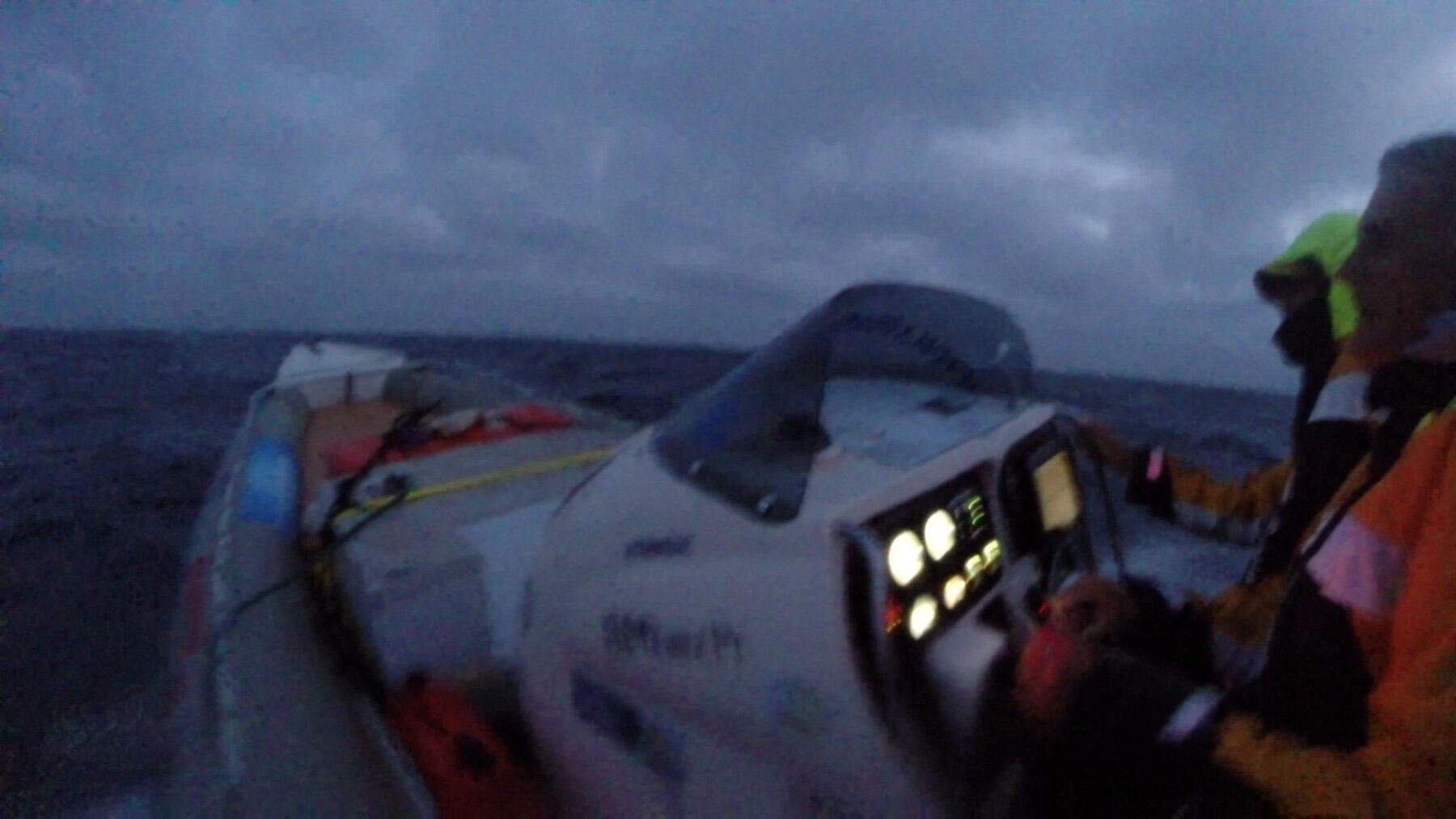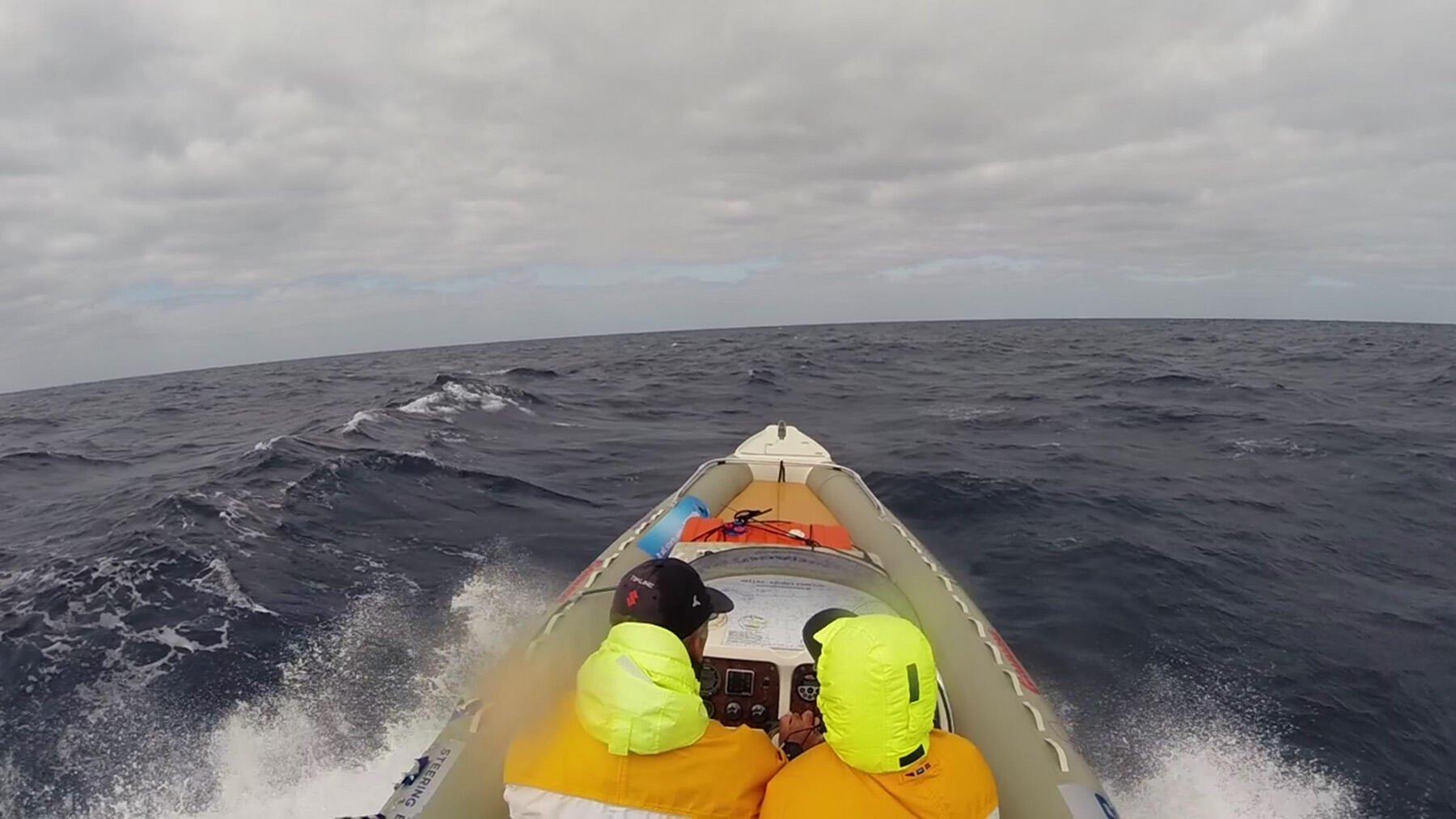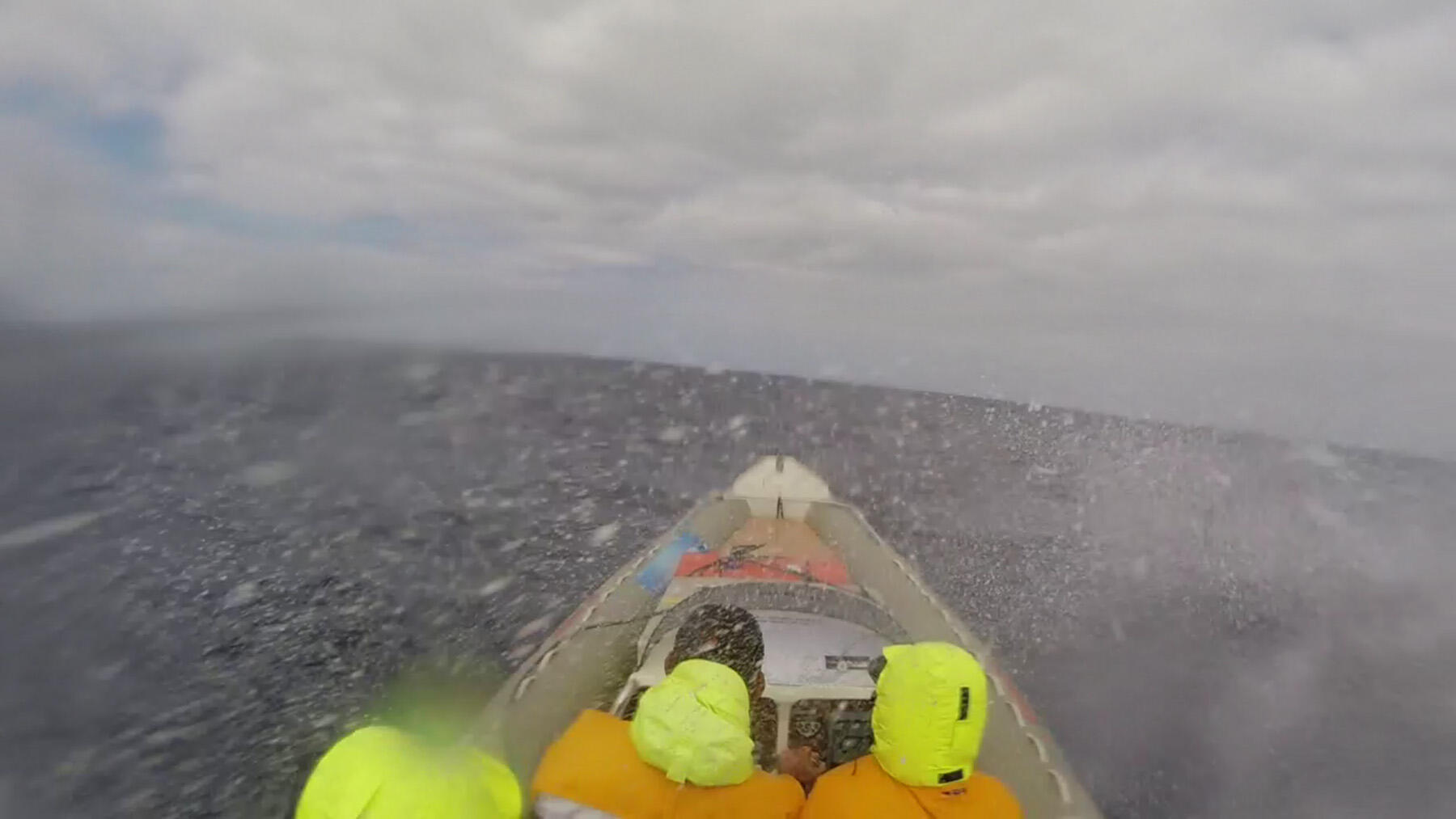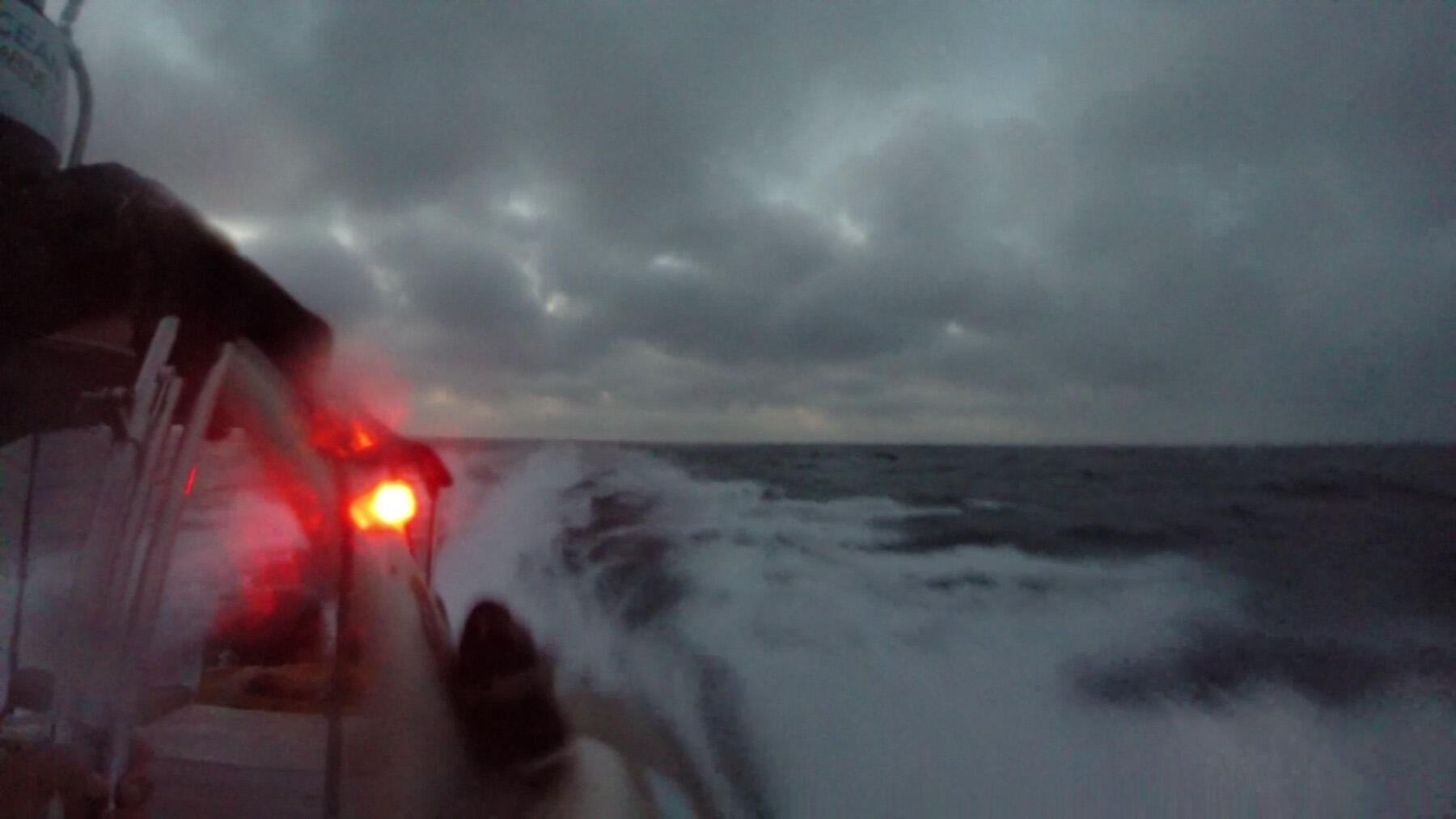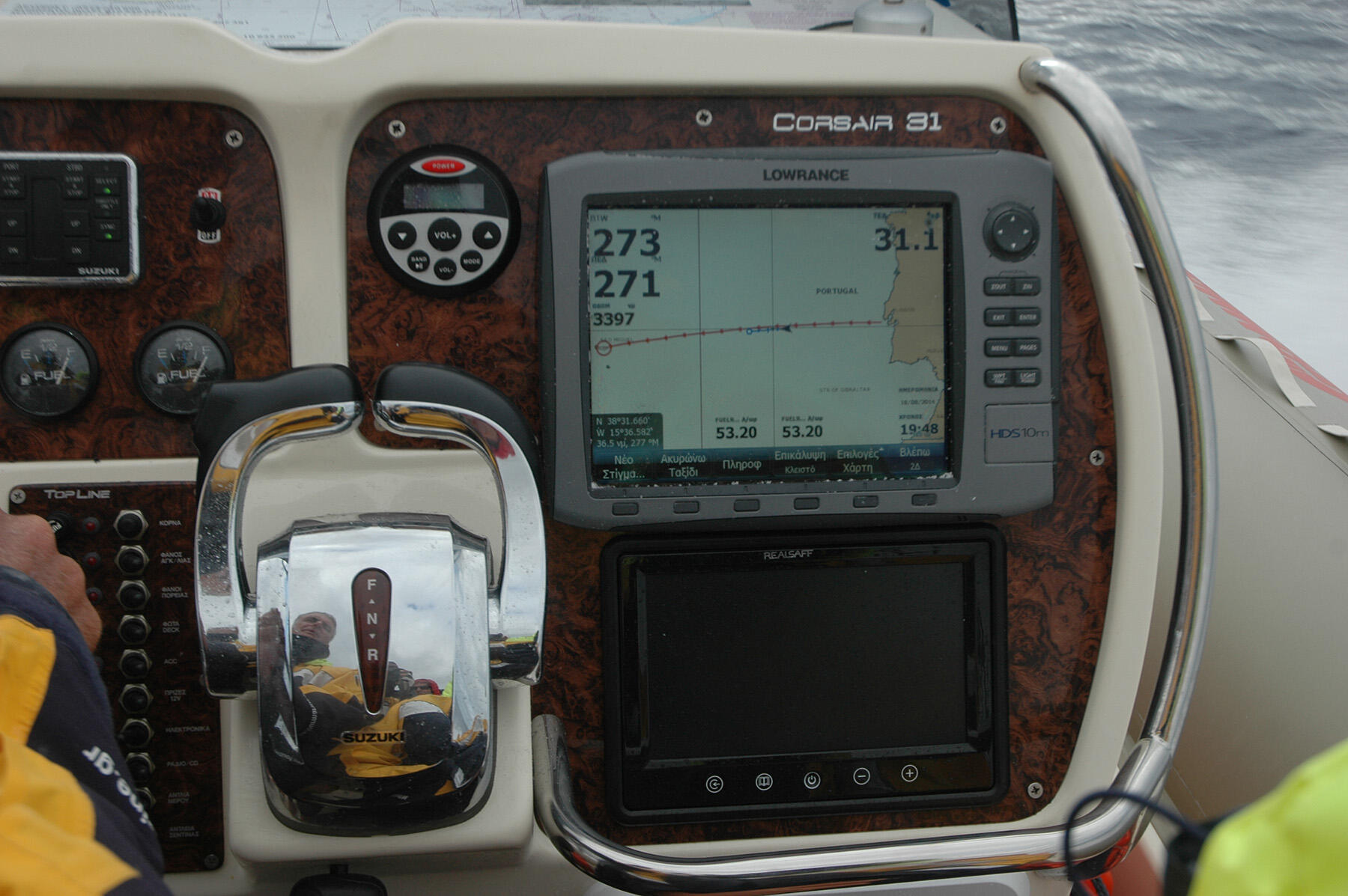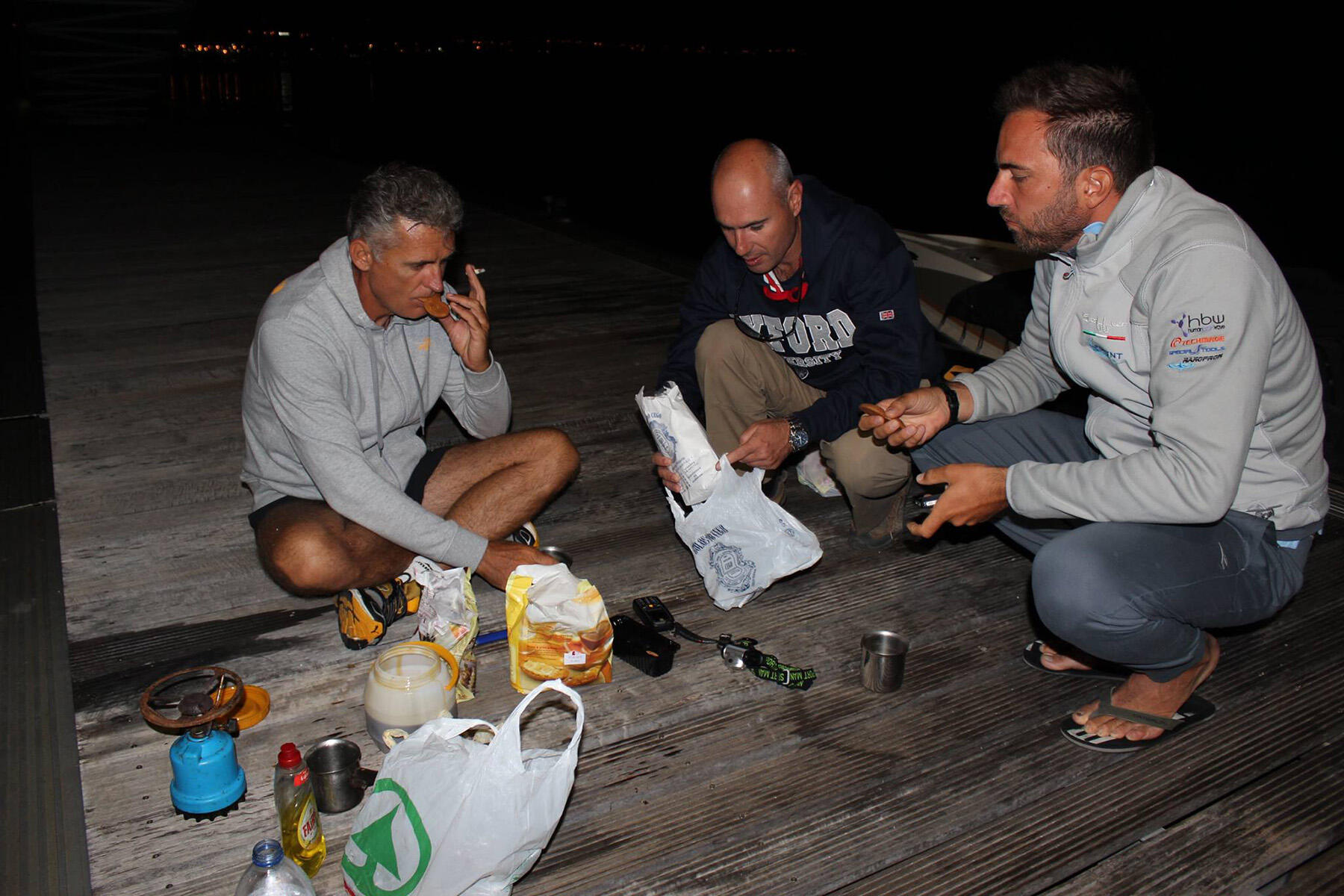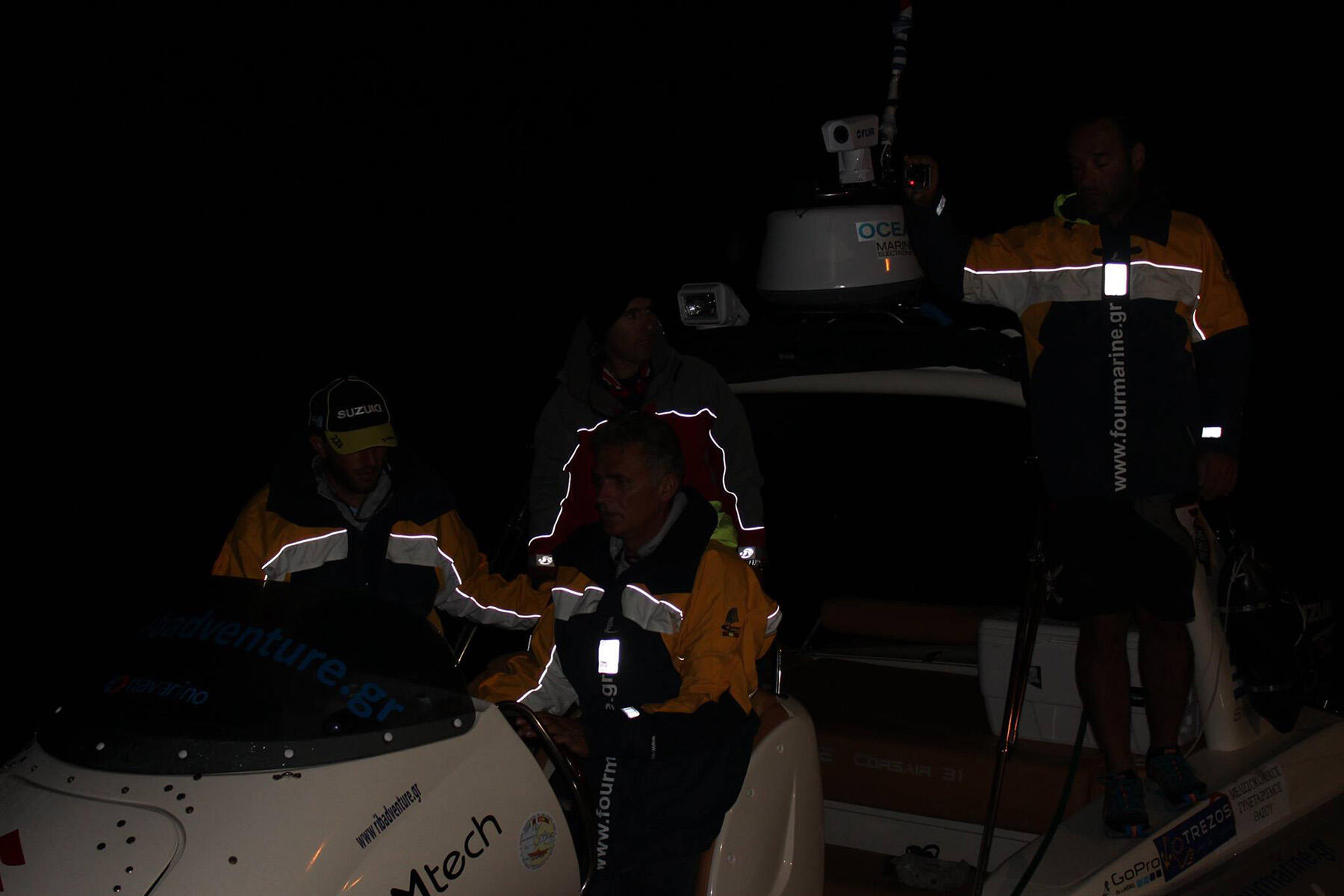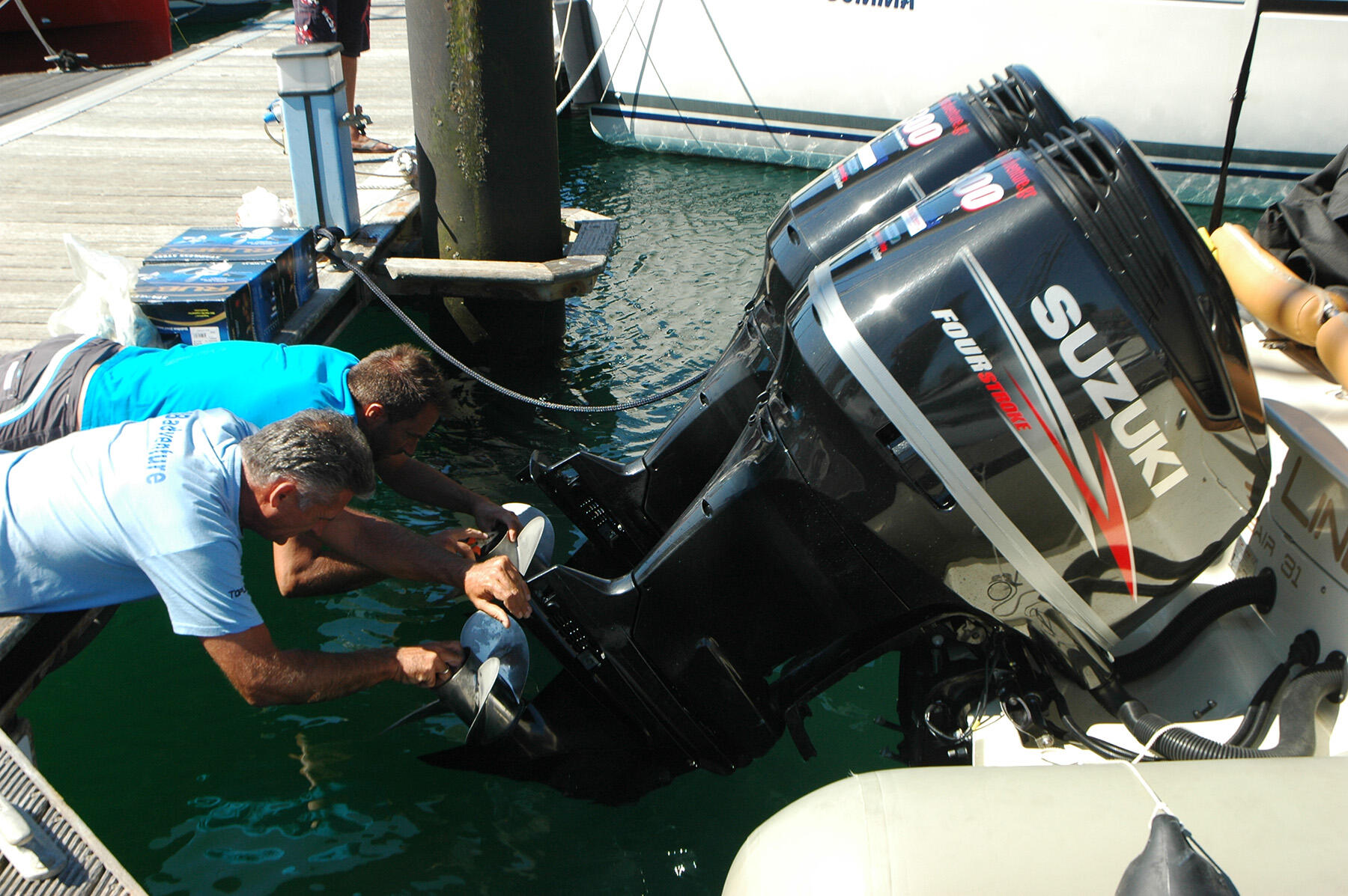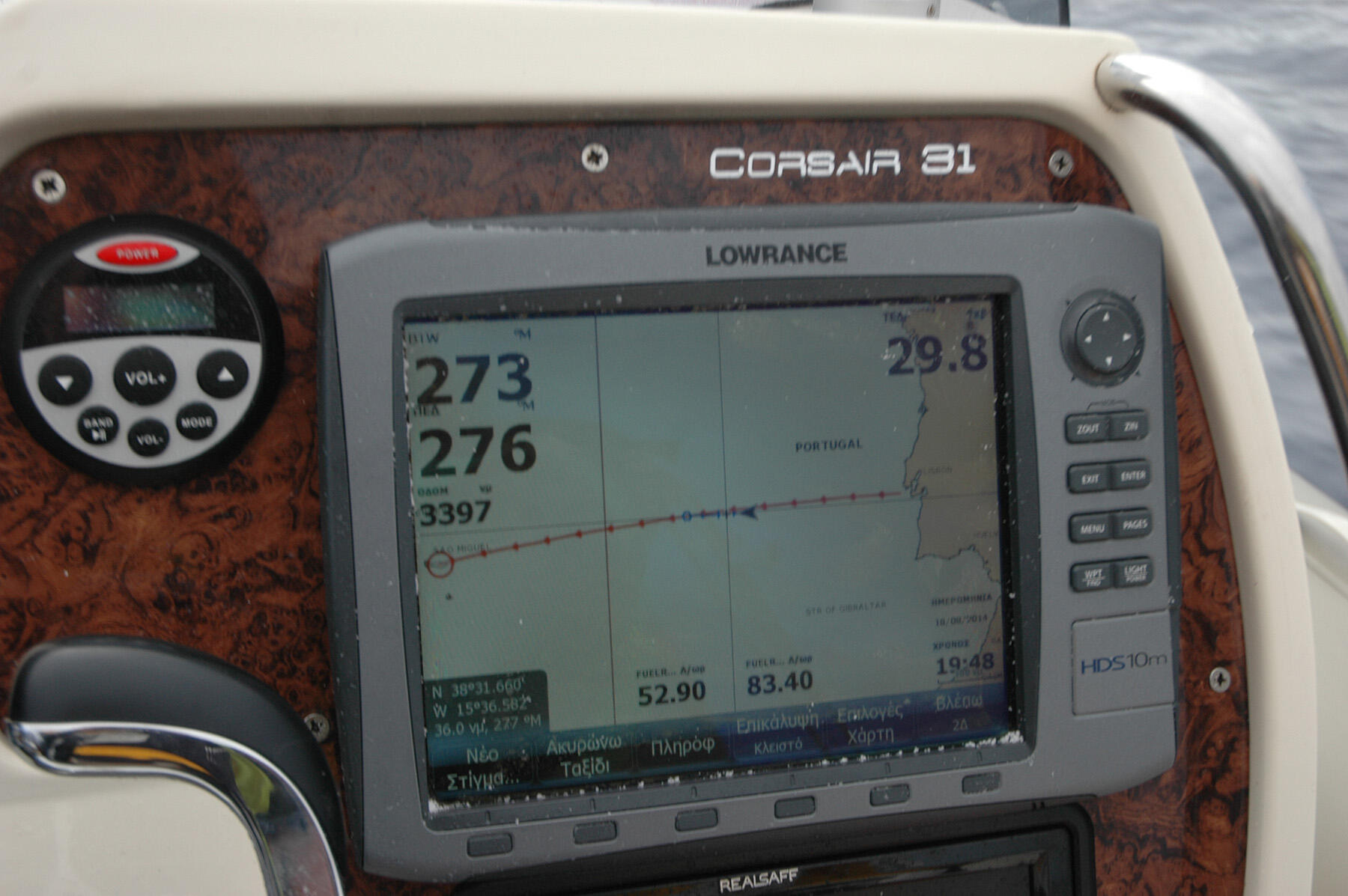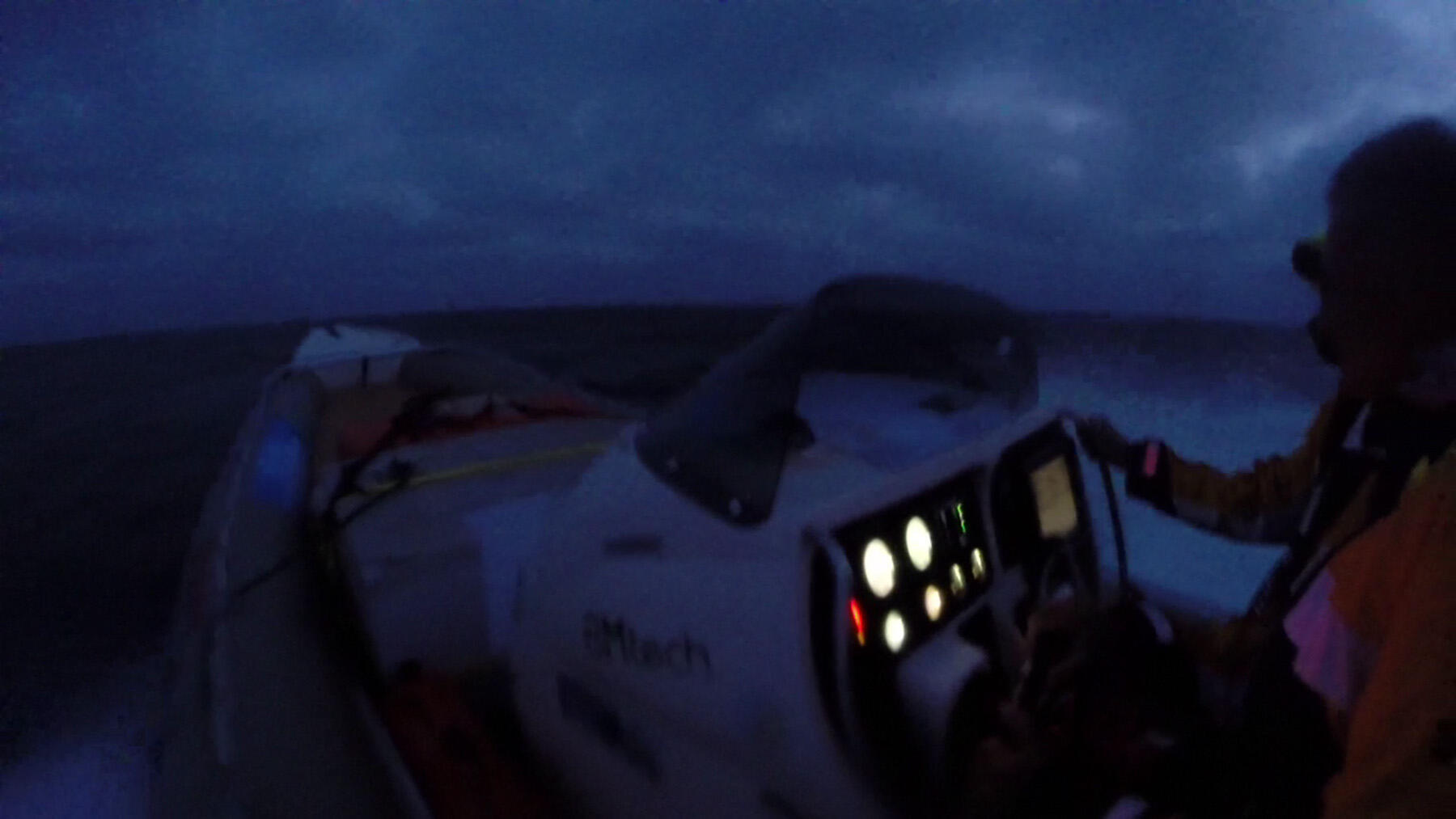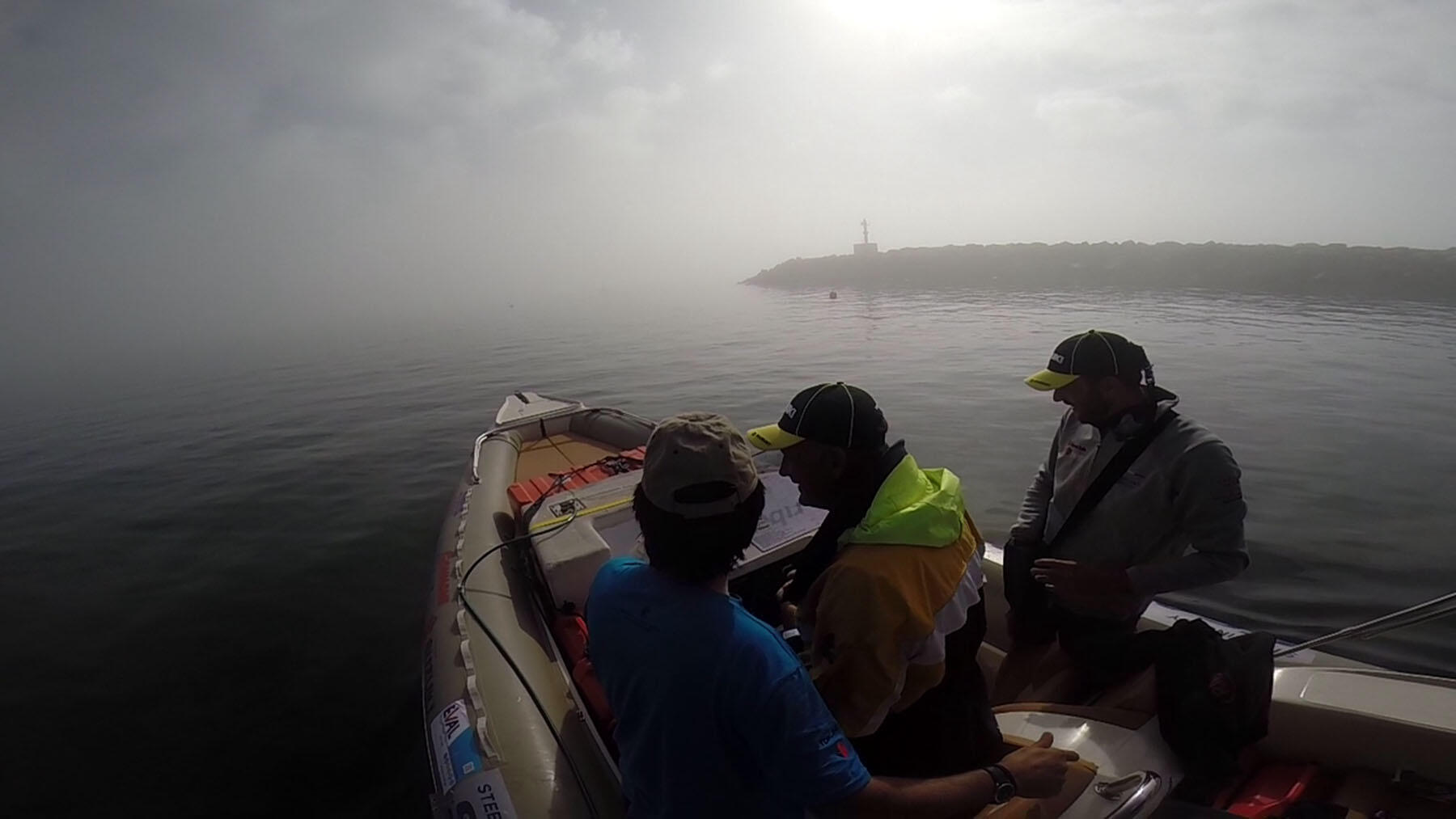
First failed attempt
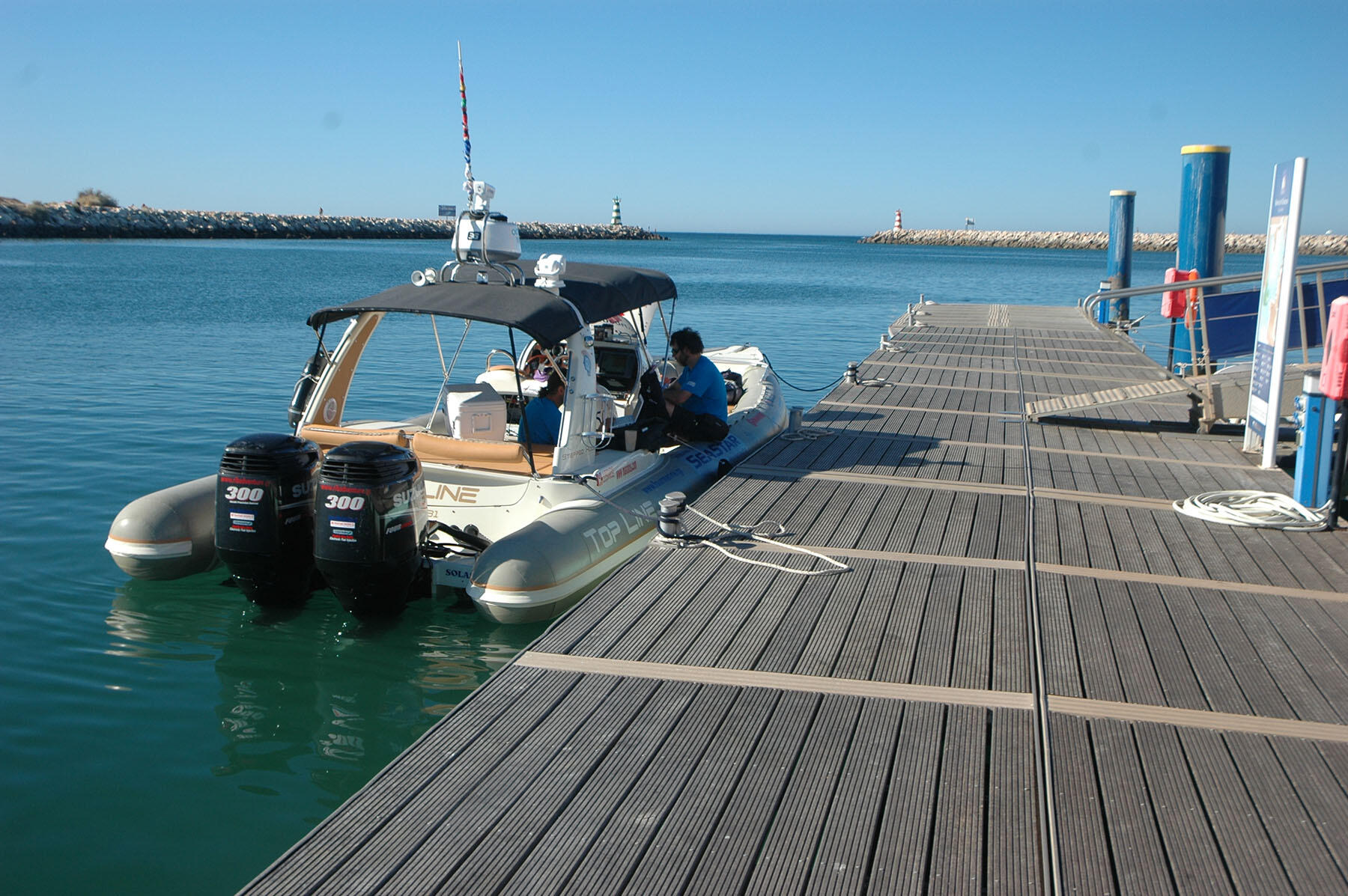
Barcelona – Lisboa

First failed attempt

Barcelona – Lisboa

First Day in Ocean 18/8/2014
After several days of waiting in Cascais, the time to live the ultimate life experience has finally arrived. Of course, we now had the previous experience of our first effort. It was obvious, though, that something was missing.
An important part of our initial energy was lost. It was significantly limited owing to the negative influence of the long wait in Cascais, which kind of knocked the wind out of us. We were trying to psych ourselves up in any way. We knew that the accumulated energy and the passion within were huge, but we had to find a way to bring them into surface, which eventually happened automatically when the cold ocean’s wind blew on us.
So, the time to untie the bowlines which kept us safe in the marina’s warmth has finally arrived. I will never forget the time when Spiros and I released the stern lines. I took my position behind the steering wheel, I set the throttle in “ahead” position and turned our bow towards the entrance of the marina.
It was six o’clock in the morning when we set sail to the ocean. The day had not dawned yet and our attention was tense. The wind has been blowing on our starboard bow, but this was not worrying, as the waves were no more than one meter high.
I was looking at the GPS and the compass in turns, as I wanted to double check whether their readings would match. I confirmed once again that the compass had no deviation and, thus, I was sure that I would be able to reach my destination, even without the help of the GPS.
Several thoughts were continuously flailing around; the dangers were too many. I was pushing myself to stop thinking the dangers and focus on the moments the open ocean would had to offer.
We all knew that this journey would be the most fascinating experience of our life. An ultimate life experience. We also knew that, this time, there would be no turning back.
This was the moment we were living for anyway! This was the moment we had been preparing for during the last year. The time has come to experience and face situations we had never met before. It would be a hard test for the RIB and the engines and for ourselves as well.
We were about to taste unforgettable moments. Even the team’s structure was interesting. We were a virtually international team consisting of two Greeks, an Italian and a Portuguese. We all seemed to be determined. We had faith in our abilities, in our preparations, in ourselves. We were sure for the liability of the RIB and the engines. On the other hand, however, the “unknown” and the big distance we had to cover filled us with insecurity and agony. The challenge of navigating in the vast ocean was huge.
Once the dawn arrived, my look stuck to the cloudy horizon, to the unbounded ocean. After the first 30 miles, the face of the ocean changed. Big swells, swells like mountains, started to approach from the north. We knew that in the beginning of the journey we would have the wind blowing on the starboard side, and as we were moving on, we would have the wind on the starboard quarter. The wind was getting stronger, until the swells became huge, while their length was no more than ten meters. The distances between the swells were smaller than we expected, which made things quite difficult. A few hours later, we had the huge swells on the starboard quarter, but two or three new waves were being created on each swell coming from northwest over our starboard bow.
The crests of the waves were “bursting” and were quite intense. We had to fight with a 5 Beaufort wind which would develop on the crests of the huge swells, predicting a rather confusing sea. It took quite much time to realise this unfamiliar sea condition, to feel its rhythm, when I pushed the throttle forward.
Unfortunately, we could not travel with 20 knots, as, in this case, fuel consumption would be prohibitive and the water fight would be ruthless. We knew that we should be travelling with a speed of at least 25 knots in order to achieve the lower possible consumptions. Fuel management should be rather strict, as there was no margin for waste. This is also why we should not deviate from our course. We should also keep our throttle stable, which was an inviolable rule, so as to maintain a constant speed and be able to estimate our spot even if something went wrong with the GPS.
The RIB was responding perfectly to its new role, although this role did not fit with the hull’s geometry. The extreme load clearly prevented the hull from finding the appropriate contact with the sea surface. This is actually why flaps were put on the transom of Corsair in the first place.
Corsair was speedily climbing over the huge swell waves, fully ignoring the extreme load it carried, splitting, at the same time, with a remarkably smoothly and painlessly manner, the two-meter waves which were raising abruptly trying to decrease its speed.
Obviously Corsair could perfectly accomplish its purpose with no problem, despite the difficult sea conditions.
Even when the hull was splashing down from a big height, we felt safe. We have had a first hand experience with the boat’s robust construction of high quality. Besides the countless free falls, we did not even once hear any strange noise nor felt any strange shock.
The problem was clearly ourselves. For how many hours would we be able to go against the waves with such a high speed? For how many hours would we be able to be absolutely focused on heading up, literally counting and reading each wave? A moment of looseness, a moment of bad judgment would be enough for the boat to get dangerously tossed about by an irregular wave, while splashing down with such a load may lead to unexpected consequences. I was so focused that I did not see anything beyond our bow. Maybe this is why I never heard of Spyro’s prompts. Even now that I am writing these lines, I cannot bring any pictures of the ocean into mind, no matter how hard I try. As if I was absolutely absent from that whole-day navigation.
So, I maintained 25 to 28 knots and me and my hull became one. I was speechless, sunk in my own world, absolutely focused on the coming waves, constantly trying to find the least painful route, while never stopped calculating our autonomy, not even for a single moment. We were consuming 4 liters per mile and my feeling of nsecurity was extremely high. Things got even worse when the wind strength reached 6 Beaufort.
I kept on thinking that before starting this journey, we were stressing that this venture could only be successfully accomplished if the first day was dead calm, as the load was extremely heavy.
However, we found ourselves to be prematurely fighting with the raging waves, which, apart from our premature exhaustion, also led to big fuel consumption.
Our fatigue came second place, as the danger of running out of fuels was evident. A thousand thoughts were running through my mind.
I was sure that, in such a weather, the fuels would not be enough. While travelling in the wild sea, wet to the bone, I started thinking of the alternative solutions we had. I decided to maintain my course and reach the distance of 200 miles into the ocean, where we would make our final countdown and we would make the big decision: either we would go back if the fuels were dangerously decreased or we would set sail for Madeira, a closer destination, as the fuels would be adequate for that destination.
We gritted our teeth and kept moving. I don’t remember exchanging any words for hours. I was focused on our bow and absorbed in my thoughts. The calculations regarding the remaining fuels were made with cinematic speed.
But I did not want to share my huge agony with anyone. I was trying to keep calm and, thus, started to focus on the GPS cursor which I had put at 200 nautical miles. For me, at these hours, that was the destination. I totally didn’t care for the total distance of 800 miles. Finally, maybe it was better this way, because even the thought of the 800 miles in such a weather would probably make me feel kind of unconfortable.
Deep in our minds, however, we all knew that after the first 200 miles the weather would perceptibly get better, as we would become closer to the center of the “high pressure” of Azores. This was the only hope which gave us the courage and strength to continue. For now, however, weather kept being really bad. We had difficult times. It is not by chance that we did not even once note our geographical position on the RIB’s calendar, which we would normally update every two hours. We did not even manage to note anything on the waterproof chart of the console.
I don’t know how much wind force we were facing, but some sea measurements are absolutely meaningless and under no circumstances can they depict the real picture of what is going on out there. The wind certainly did not exceed 25 knots, but waves were confusing and huge. It was obvious that swells were travelling for many many miles without any land stopping their way and, thus they were being developed without obstacles reaching up to amazing heights. The view of the ocean was breathtaking.
The “water mountains” around us carried such amounts of energy, that one would bet that they were capable of washing away anything on their path. Not to mention those two-meter waves which were running on top of the big swells emptying “live” sea on us. Their crests were ragingly bursting, while the distances between them were rather small. This meant that we should be travelling very aggressively, bridging the waves and receiving much water, as the hull met each wave at an angle of about 45 degrees.
When we covered 100 miles, with our teeth rattling from the cold, we stopped to change clothes. It was impossible to continue with the same clothes, as we had absorbed so much water that we were wet to the bone.
Now that I am writing these lines in the warmth of my office, I realise how bad it was out there under those weather conditions. It would be difficult even to go back, let alone the 700 remaining miles! It was obvious that our passion and focus on our goal had blocked our mind and left no room to such kind of thoughts.
We took our clothes off and we put our neoprene suit and our waterproof outfit over it. Then, feeling better and more warm, we returned to the fight with the ocean.
The ocean continued being generous with us, unsparingly gifting us with thousands of drops of sea water per second. Clouds persisted on hiding the sun which we, at that point, needed more than ever. We were travelling under a permanently loaded sky and undoubtedly a shinny day would raise our morale.
Everything showed that nothing was on our side that day.
It was some hours after noon when I distinguished a big light blue hole long away in the distance, high up the sky. “When I get right beneath it, I will make a big stop” I mumbled. Indeed, after while, the throttle stopped, we took our waterproof outfit off and we rested as we could under the sun, seeking some of the sunlight’s energy which was fabulously “burning” us. No doubt this was the most beautiful moment of our first day to the ocean. It washed all our fatigue away and gave us strength and energy to continue.
At some point we noticed that the VHF antenna had been broken and it was hanging from its cable.
We removed it with no second thoughts and, at the same time, we decided to change the propellers. Needless to say that it was not possible to put the tender on the water and change the propellers with its help, as we had initially planned. The waves were too high, as was the danger. So, we trimmed the engines, I lied on them and with my head facing downwards I was trying to center the nuts of the propellers. The waves were moving us up and down, Spiros was holding me by the feet and Cris was passing me the tools in the right order. We nicely made it, as all the crew moved to the bow and we did our best altogether. Now, wearing two Suzuki 20" pitch clockwise propellers, those Carlos had sent from Barcelona, we put back into course.
Our passion was so big that we exceeded my first destination of 200 miles and we were continuing our course. I, now, wanted to travel for some more miles with the new propellers and watch their behavior in a better weather, so as to be able to make more precise calculations later on.
Indeed, around seven o’clock in the afternoon, weather calmed down and only the big swells were coming over the starboard quarter, without creating problems to our course. I raised the speed to 32 knots.
Our eyes were stinging and red because of the spray and the salt of the ocean which was attacking us for about twelve hours. I was thinking how exposed we were “heading up” all day, without helmets or tents to protect us.
We covered the boat with the tent room, we took off the waterproof outfit and the neoprene suit and we put warm clothes on. We had exceeded the distance of 300 miles and we took paper and pencil starting the calculations. During the first 200 miles we were consuming an average of 4 liters per mile, while during the rest 100 miles we were consuming an average of 3,4 liters per mile. Given the expected good weather and the fact that we would put propellers with bigger pitch when the load would be lighter owing to the fuel consumption, everything showed that the odds to make it were now on our side. This ascertainment was quite encouraging. Cris took over the steering wheel and we continued with a course of 32 knots.
With the sun setting just in front of our bow we continued with this speed for two hours. The dark was now dense but the challenge was big. If we would continue with this speed we could reach our destination early in the morning and we would achieve a very good time, which would obviously be a world record difficult to beat. And this was something we all desired. But what would happen if we hit against a tree trunk or any of the thousands of containers which are “travelling” half-sunk in the ocean?
We were already deep inside the endless blue ocean desert!With no second thoughts, the throttle returned to its “back” position.
Our safety was our primary priority, above any record, above any success...
The adventure goes on... next article "Night in Atlantic Ocean".
...keep Ribbing!

